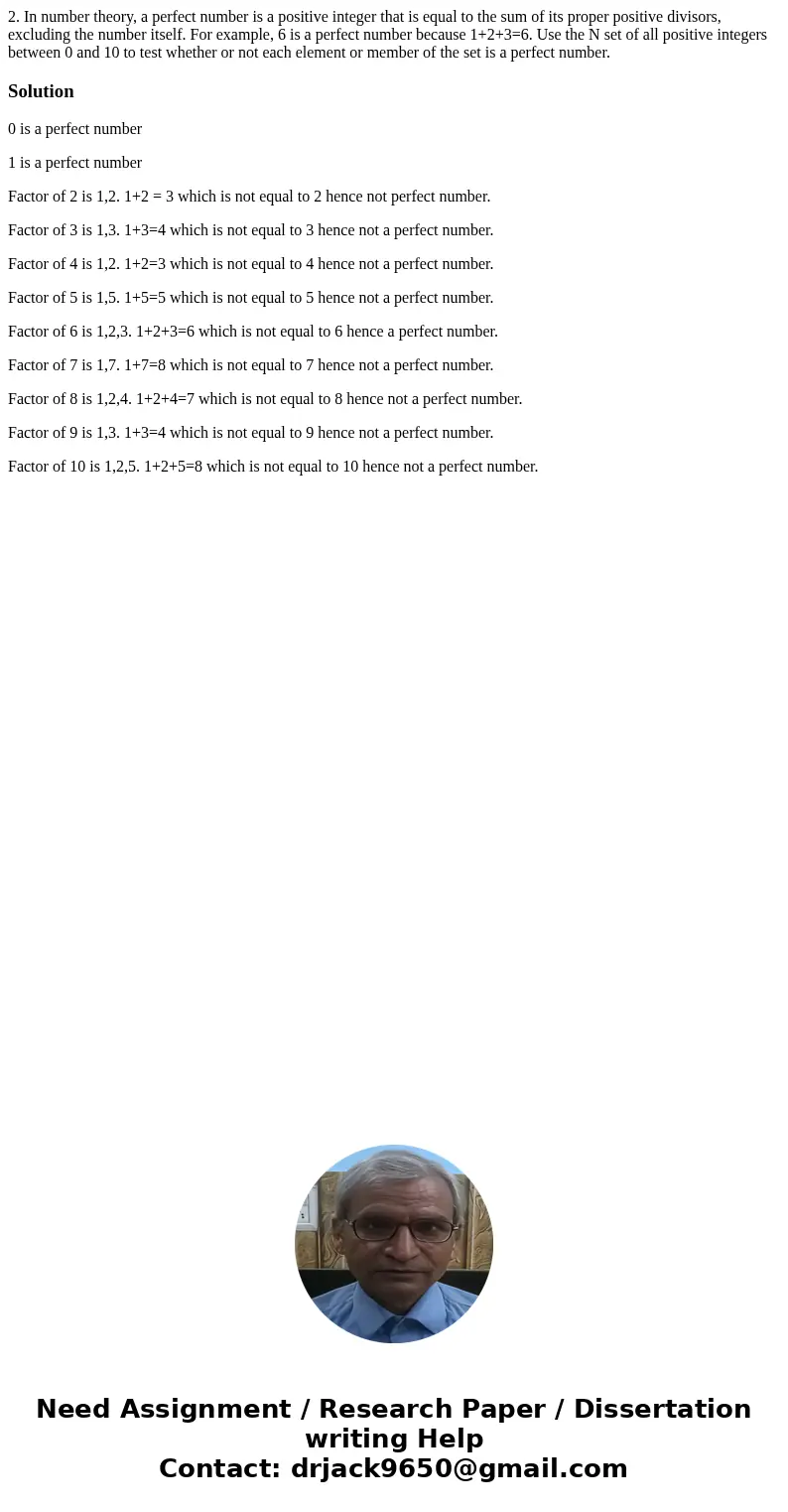2 In number theory a perfect number is a positive integer th
2. In number theory, a perfect number is a positive integer that is equal to the sum of its proper positive divisors, excluding the number itself. For example, 6 is a perfect number because 1+2+3=6. Use the N set of all positive integers between 0 and 10 to test whether or not each element or member of the set is a perfect number.
Solution
0 is a perfect number
1 is a perfect number
Factor of 2 is 1,2. 1+2 = 3 which is not equal to 2 hence not perfect number.
Factor of 3 is 1,3. 1+3=4 which is not equal to 3 hence not a perfect number.
Factor of 4 is 1,2. 1+2=3 which is not equal to 4 hence not a perfect number.
Factor of 5 is 1,5. 1+5=5 which is not equal to 5 hence not a perfect number.
Factor of 6 is 1,2,3. 1+2+3=6 which is not equal to 6 hence a perfect number.
Factor of 7 is 1,7. 1+7=8 which is not equal to 7 hence not a perfect number.
Factor of 8 is 1,2,4. 1+2+4=7 which is not equal to 8 hence not a perfect number.
Factor of 9 is 1,3. 1+3=4 which is not equal to 9 hence not a perfect number.
Factor of 10 is 1,2,5. 1+2+5=8 which is not equal to 10 hence not a perfect number.

 Homework Sourse
Homework Sourse